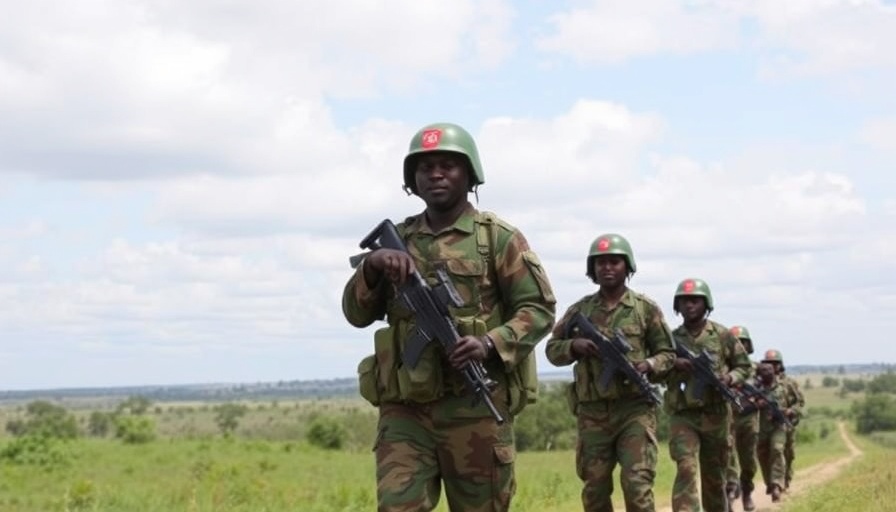
Rwanda's Strategic Role in SADC Troop Withdrawal
In a region already beleaguered by conflict, the Rwandan military recently facilitated the withdrawal of Southern African Development Community (SADC) troops from eastern Democratic Republic of Congo (DRC) to Tanzania. This maneuver not only underscores Rwanda’s pivotal role in regional security but also raises questions about its long-term strategies and relationships with neighboring countries.
The Backstory: SADC's Intervention and Withdrawal
The SAMIDRC force was deployed in December 2023 to bolster the Congolese government’s fight against insurgents. Rwanda initially protested this deployment, insisting it could worsen instability. Since then, multiple reports have surfaced regarding the effectiveness of SAMIDRC, especially as it struggled amid rising hostilities and clashes—particularly with the M23 rebels, who have since consolidated power in eastern Congo.
Geopolitical Implications for East Africa
Rwanda’s role in escorting SADC troops is emblematic of larger geopolitical tides. As various nations grapple with their influence in Central Africa, Rwanda stands at the intersection, navigating a precarious balance. The Rwandan government’s assertion that SAMIDRC was aligned with opposition movements—which criticized Rwanda's historical involvement in the DRC—further complicates the dynamics of regional diplomacy.
Potential Economic Ramifications
As Rwanda enhances its military credibility on the regional stage, investors and policymakers must pay close attention to the potential economic repercussions. The ongoing unrest threatens not only Congolese communities but also transnational trade routes critical to the African economy. With major players like Tanzania and South Africa involved, the economic fallout from sustained conflict could stymie growth and destabilize financial markets across the continent.
Future Trends and Developing Solutions
Looking ahead, there are calls for a more defined political resolution to lingering tensions in the DRC. Mediation efforts led by Angola and Qatar have yet to yield tangible results, leaving many to wonder how long military involvement can serve as a solution. A bilateral agreement between Congo and Rwanda is on the table, aiming for resolution by early May; however, skepticism remains high.
Conclusion: The Need for Caution and Strategic Thinking
As these developments unfold, the involvement of Rwanda and the broader implications for SADC indicate potential shifts in the regional power dynamics. For business leaders, policymakers, and academics, remaining vigilant and proactive is imperative. Understanding the interconnectivity of these issues will be crucial for leveraging opportunities within the evolving landscape of Africa’s global role.
 Add Row
Add Row  Add
Add 


 Add Row
Add Row  Add
Add 

Write A Comment